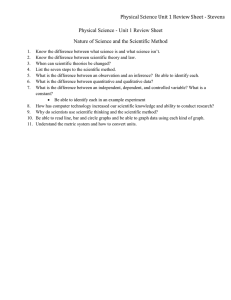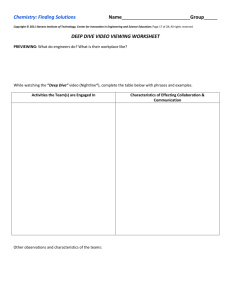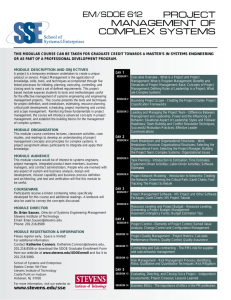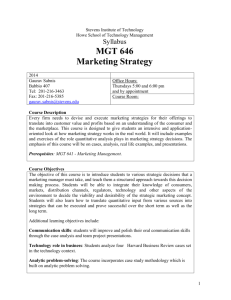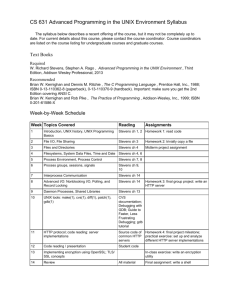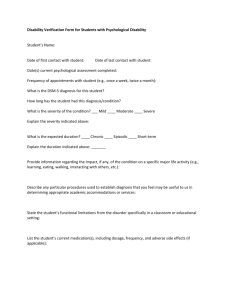www.studyguide.pk BUSINESS Marketing Optional module
advertisement
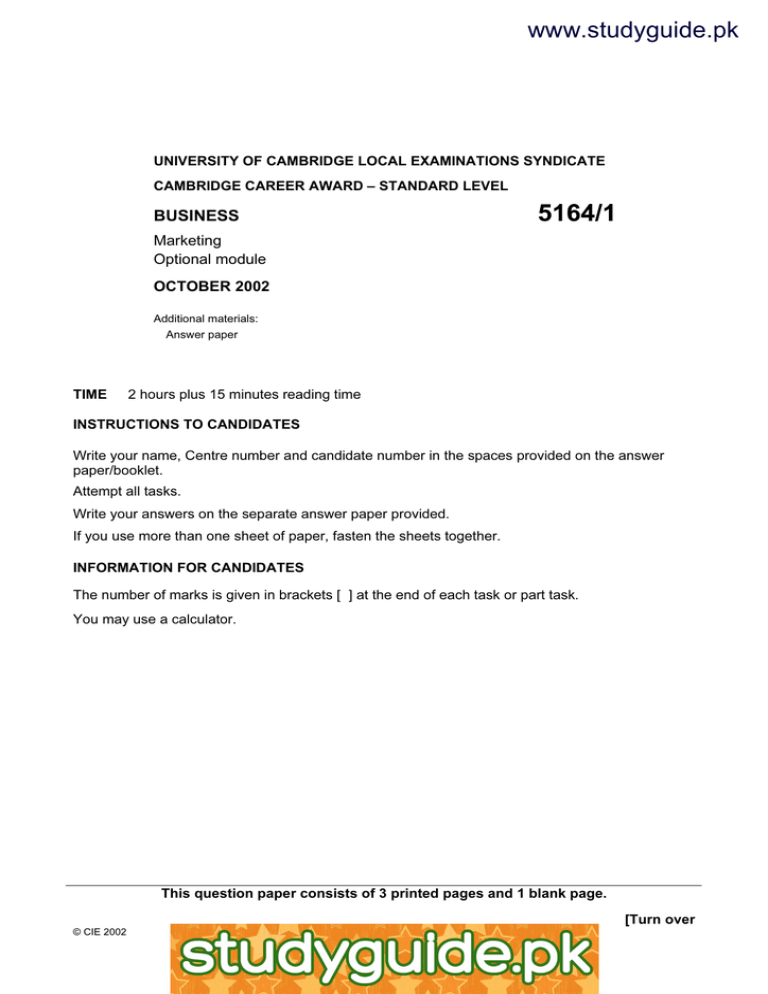
www.studyguide.pk UNIVERSITY OF CAMBRIDGE LOCAL EXAMINATIONS SYNDICATE CAMBRIDGE CAREER AWARD – STANDARD LEVEL BUSINESS Marketing Optional module OCTOBER 2002 Additional materials: Answer paper TIME 2 hours plus 15 minutes reading time INSTRUCTIONS TO CANDIDATES Write your name, Centre number and candidate number in the spaces provided on the answer paper/booklet. Attempt all tasks. Write your answers on the separate answer paper provided. If you use more than one sheet of paper, fasten the sheets together. INFORMATION FOR CANDIDATES The number of marks is given in brackets [ ] at the end of each task or part task. You may use a calculator. This question paper consists of 3 printed pages and 1 blank page. [Turn over © CIE 2002 www.xtremepapers.net www.studyguide.pk 2 You must read the case study below and attempt ALL the tasks which follow. (The following Case Study is fictitious) Case Study – Stevens Computers Stevens Computers is a global operator in the Personal Computer (PC) market with factories world-wide. In order to compete and to ensure customer satisfaction, Stevens has to manage its quality and its supply of components very carefully. It sells ready-built PCs from a combination of its own and its suppliers' components, and also its own components to a select group of customers. If any part of the supply chain to Stevens breaks down or fails to supply a suitable standard of goods, then the production line is affected. It doesn’t matter how much they spend on advertising, the customer will not be satisfied if the product is unavailable, does not work, or does not meet expectations. Total quality, therefore, is a key philosophy throughout Stevens' operations, resulting in better products and better processes. Stevens' quality philosophy has five important elements: - Customer first Strive for excellence Innovative leadership Value our people Partnership relationships with suppliers Directly or indirectly, many of these principles could not be properly implemented without good relationships with the right suppliers. Stevens encourages supplier relationships based on trust and co-operation, and sharing experience and expertise to benefit not only the buyer and the supplier, but also the end customer. Together, Stevens and its suppliers develop technology, solve problems, and learn from experience to try to avoid misunderstandings. The Senior Management team at Stevens believe that it is through the production of such high quality products that they are able to satisfy their key target groups of customers and so remain profitable. They carry out customer research twice every year to see whether customer needs are changing and to ensure that they are maintaining high levels of customer service. They also carry out general marketing research with non-customers, as well as competitor research, to find out what is happening in their market place. 5 10 15 20 25 One group of target customers consists of large companies buying PCs to maintain their business operations. Relationships with these customers are managed by a small team of Key Account Managers. PCs are supplied direct to these companies by Stevens. Another group of customers are computer retailers – these are also supplied direct by Stevens. This group then sells on PCs to individual consumers. The final main target group of customers are PC specialists who build PCs for individual clients. These specialists order components from Stevens and other companies and then assemble PCs according to a specification provided by their own client. Stevens had considered providing this service itself via its website, but had decided that the cost of switching to this type of business would be too high, and it would risk damaging the company’s image through alienating this longstanding group of customers. Stevens' prices are among the highest in the market place. However, they are the market leader in ready-built PCs and believe that they hold this place because of their marketing skills and their approach to quality and customer service. 5164/1/O/02 www.xtremepapers.net 30 35 40 www.studyguide.pk 3 You must attempt ALL the following tasks. 1 Stevens has developed a marketing culture within its company. (a) Explain what is meant by a 'marketing culture'. [5] (b) List and explain five benefits of meeting customer needs and keeping customers satisfied. [15] [Total: 20] 2 (a) Explain the term 'marketing research'. [5] (b) Stevens carries out primary research with customers and non-customers. The company does this using questionnaires. Explain three advantages and two disadvantages of: 3 (i) Face to face interviews [5] (ii) Telephone surveys [5] (iii) Postal surveys [5] [Total: 20] Stevens collects information from its customers every year to check that they are satisfied with the level of customer service they receive. Explain the following steps for the collection of this specific information: (a) Setting of research objectives [4] (b) Selection of different research methods/sources of information [4] (c) Data collection and sampling decisions [4] (d) Analysis of data [4] (e) Conclusions to be drawn from the findings 4 (a) Referring to PEST analysis, explain how an understanding of the external issues which affect Stevens’ operations will help the company develop its marketing plan. Also include two examples relevant to the case study under each of the four PEST headings. [16] (b) List the elements of the marketing mix. 5 [4] [Total: 20] [4] [Total: 20] (a) Draw three individual diagrams showing the channel to market for each of Stevens’ target groups of customers, i.e. PC retailers, specialist PC builders and large companies. [6] (b) Explain Stevens’ pricing strategy. [6] (c) From the case study, identify and explain two means of promotion used by Stevens. [8] [Total: 20] 5164/1/O/02 www.xtremepapers.net www.studyguide.pk 4 BLANK PAGE 5164/1/O/02 www.xtremepapers.net
